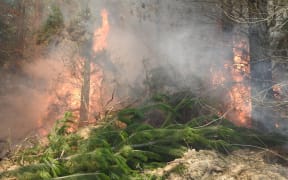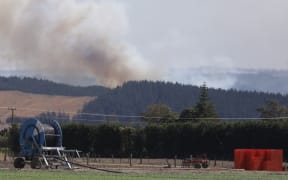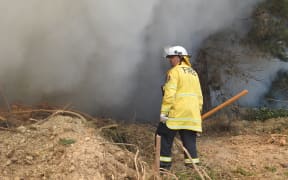Climate change is a challenge faced internationally by emergency services but Fire and Emergency New Zealand (FENZ) says it's well-resourced and will have "a couple of decades" to prepare.
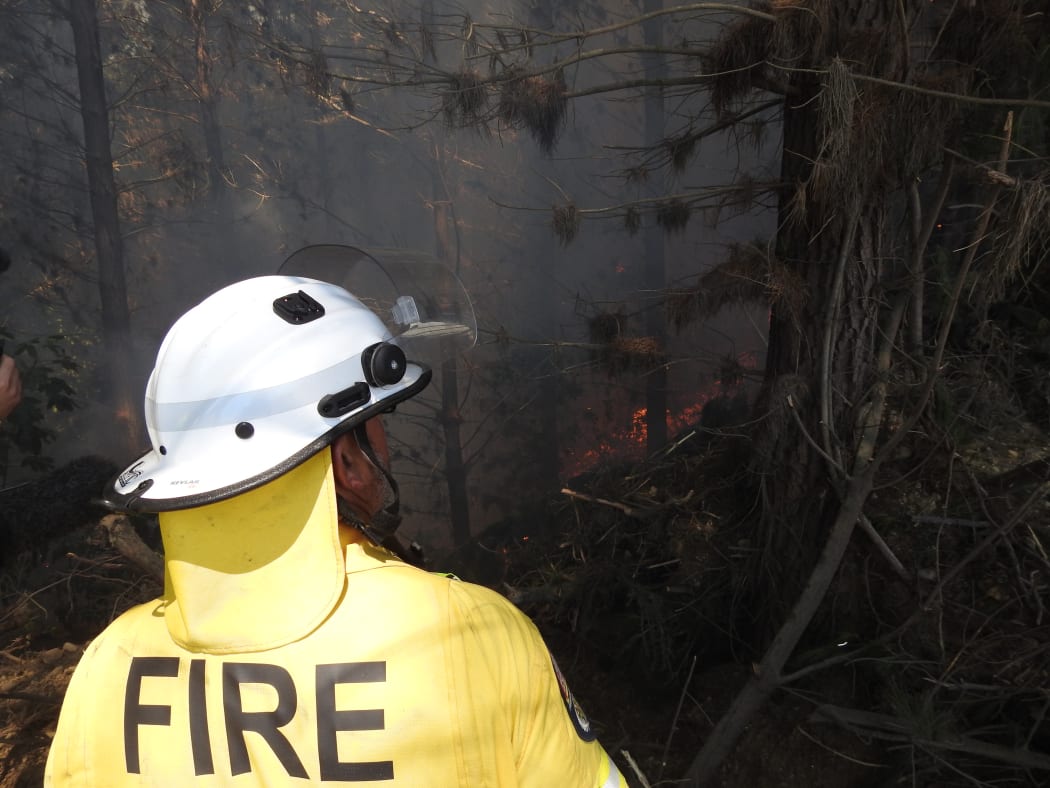
Fire and Emergency New Zealand says it's important it stays informed about changes to weather patterns that may impact future fire risk. Photo: Supplied / Fire and Emergency
Fire risk in parts of the country is expected to dramatically increase with climate change, particularly in areas that currently have low risk.
Research in 2011 looked at 21 weather stations across the country and what the projected change in conditions - temperature, humidity, windspeed, and rainfall - would mean for fire danger.
It compared fire risk under the average current climate to expected risk in the 2040s and 2090s. Fire danger levels were likely to increase in coastal Otago, Marlborough, South-eastern Southland and the west of the North Island, particularly around Whanganui.
FENZ rural national manager Kevin O'Connor said: "It's important that we keep informed about predicted changes to New Zealand's weather patterns that may impact future fire risk across the country. We monitor this with a risk profile modelling tool, which we will continue to develop...
"Climate change is a challenge faced internationally by emergency services. Fire and Emergency NZ is a member Australasian Fire and Emergency Service Authorities Council (AFAC). We are working with AFAC to develop assessment tools and determine what training tools and structural requirements there are..."
Asked if FENZ would require further funding, staff or equipment to cope with climate change, Mr O'Connor said the organisation was currently well resourced, including having 12,000 volunteers and 2000 career staff.
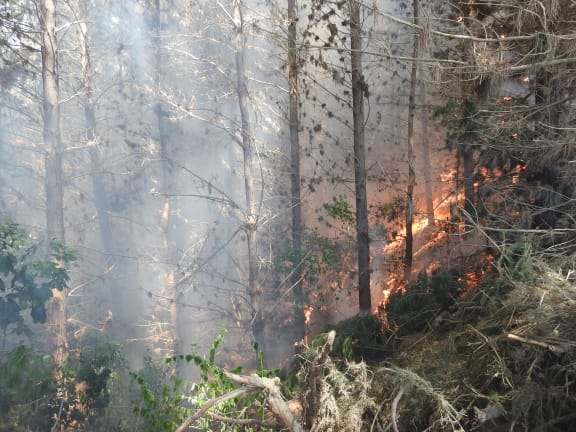
An FENZ image of the Nelson fire. Photo: Supplied / Fire and Emergency
"We can also access support from DOC, NZ Defence support as well as forest industry workers and contractors.
"We will continue to monitor any environmental changes and will review resourcing needs if required. If there are any changes, these will not happen overnight and we will have a couple of decades to prepare."
If required, FENZ would look internationally for extra resources and had good relationships with the United States, Canada and Australia.
That would only occur in the situation of a number of extreme events - like the current Nelson fire - occurring at the same time, Mr O'Connor said.
With fire fighting technology continuously advancing, FENZ was "always looking at what best practice fire fighting techniques and technologies may be", Mr O'Connor said.
For now, FENZ would continue to focus on fire prevention and educating communities on fire risk, what they can do to prevent fires and keeping safe.
